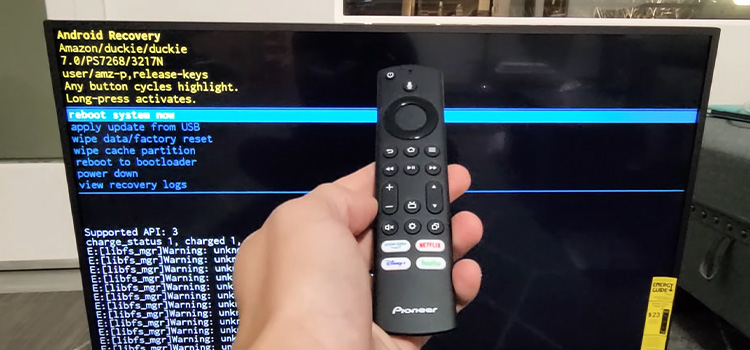Is It Worth Buying an Expensive Power Supply? A Simple Buying Tip
In the world of computing and electronics, there’s an age-old question: “Is pricier always better?” This is especially true when considering a power supply unit (PSU) for your computer.
While some might argue that a PSU is a place where you can cut corners, there are genuine reasons why investing in a higher-end power supply can be worth the extra bucks.
In this article, we’ll explore the reasons why you might want to invest in a higher-end power supply and what benefits you can achieve by doing so. To determine whether it is worth buying or not let’s read by the end of the article.

Differences Between Expensive and Inexpensive Power Supply Units
Here are the differences the Expensive and Inexpensive PSUs:
| Aspect | Expensive PSUs | Inexpensive PSUs |
| Build Quality & Components | – High-quality components- Robust casing – Better soldering | – Potentially lower-quality components- Cheaper casing- Inconsistent manufacturing |
| Efficiency | – Often 80 PLUS certified for efficiency- Minimal power wastage | – May lack 80 PLUS certifications- Higher power wastage and heat generation |
| Safety Features & Protection | – Extensive protective features (OVP, OCP, SCP, etc.) | – Fewer protective features or less effective implementation |
| Modularity | – Modular or semi-modular designs for cable management | – Non-modular design- less cable management flexibility |
| Noise Levels & Cooling | – Quieter and more efficient fans- Potential fanless mode under low loads | – Noisier due to cheaper fans or design – Less efficient cooling |
| Warranty & Support | – Longer warranties, often up to 10 years- Better customer support | – Shorter warranties – Limited customer support |
From the table above, you may already have understood that the more expensive PSU is better and more efficient. Now, let’s see whether it is worth buying or not.
Are Expensive Power Supplies Worth It Buying?
The power supply is one of the most important components in a computer, but it’s also one of the least understood. It’s responsible for providing power to all of the other components in your system, and a bad power supply can cause all sorts of problems, from instability and crashes to permanent damage to your hardware.
Expensive power supplies offer better efficiency, higher-quality components, enhanced safety features, and longer warranties. All these features help ensure reliable performance and protection for your computer components.
So, is it worth buying an expensive power supply? The answer depends on your needs and budget. If you’re building a high-end gaming PC or a workstation, then yes, it’s worth investing in a good quality power supply. However, if you’re just building a basic budget PC, then you may be able to get away with a cheaper unit.
Let’s check what benefits you can get from an expensive power and what drawbacks you may encounter.
Benefits of Buying an Expensive Power Supply
Here are some of the benefits of buying an expensive power supply:
- You can have better design and detailed circuitry with expensive PSUs.
- You can get better quality parts like capacitors and transformers which might cost more but ensure efficiency and durability.
- Expensive PSUs with 80 PLUS ratings are more efficient in saving electricity.
- You can have additional PSU protection like OVP (Over Voltage Protection), OCP (Over Current Protection), and SCP (Self Control Protector).
- Modular PSUs will let you choose cables.
- More expensive power supplies are also better at providing clean, stable power.
- You will obviously get a longer warranty on high-quality PSUs.
Drawbacks of Buying an Expensive Power Supply Unit
Though there are a lot of benefits to buying expensive PSUs, there are also some downsides to buying an expensive power supply:
- You might be paying for power and features you don’t need.
- Beyond a point, extra cost doesn’t mean much better quality.
- Some high-end PSUs are bigger and might not fit all cases.
- If it breaks post-warranty, fixing or replacing it can be expensive.
- Some pricey PSUs have features or connectors that might limit future upgrades.
Bonus Tips for Buying the Best PSU
Expensive PSU doesn’t always mean that it will be the best PSU for you. To choose the most suitable PSU for your rig, you have to consider some key factors. Here are some tips for choosing a power supply:
- Make sure the power supply has enough wattage for your system. You can use a power supply calculator to determine how much wattage is needed for your rig.
- Choose a power supply with a high-efficiency rating. The 80 Plus certification program is a good way to compare the efficiency of different power supplies.
- Choose a power supply from a reputable brand. There are a number of good power supply brands on the market, such as Corsair, EVGA, and Seasonic.
- Read reviews of different power supplies before you buy one. This can help you to choose a power supply that is reliable and has good features.
Summary
Remember what Uncle Ben said – “Great power comes with great responsibilities”. The same goes for expensive power supply units. With expensive power supplies, you may get better build quality, less noise, and top-notch safety features, they’re particularly suitable for high-end builds or workstations. For your standard or budget PC builds, a high-priced PSU might be an unnecessary expense. So, it is always essential to match the PSU to your system’s requirements which includes factors like wattage and component compatibility. Before making a purchase, always research the PSU’s brand and read reviews to ensure it’s a good fit for your needs. Best of luck with your future power supply purchases!
Subscribe to our newsletter
& plug into
the world of technology





